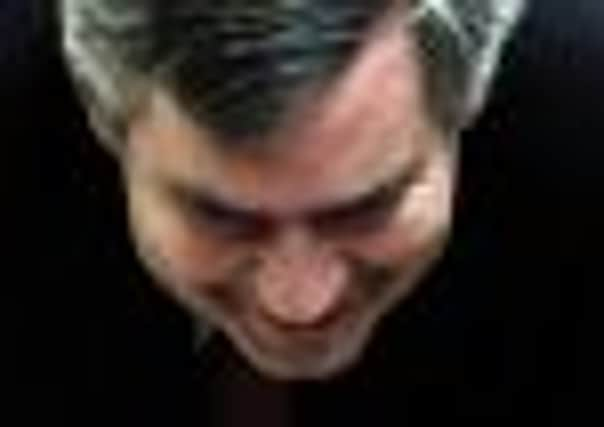Sketch: Polar opposites faced same accusations but neither had regrets


Former Prime Minister Gordon Brown and the Tory Chancellor George Osborne have both been accused of being too close to the Murdoch empire – the former organising a pyjama party, the latter a regular at drinks parties.
Both Mr Brown and Mr Osborne found themselves being grilled on ideas they may have held on who would make a good director of communications.
Advertisement
Hide AdAdvertisement
Hide AdFor Mr Brown, it was the infamous Damien McBride, who was forced to resign once it was revealed he wanted to launch a smear campaign on the internet against David Cameron.
For Mr Osborne, it was his suggestion Andy Coulson – who is still a friend – would make a jolly good spin doctor, despite the allegations of phone hacking at the News of the World, from which Mr Coulson had just resigned as editor.
But while Mr Brown and Mr Osborne faced similar accusations, their manner of dealing with them could not have been more different.
The grey, pained face of the former Prime Minister, displayed raw emotion writ in the deepening lines across his face.
There was not a hint of regret, but rather line after line of how the Sun, Rupert Murdoch and Rebekah Brooks had maligned and tortured him and his family.
He even suggested that the self-styled newspaper of the armed forces had somehow undermined the war effort in Afghanistan.
The gruff and almost monotone voice that failed to charm the south of England but managed to maintain loyalty north of the Border told of a campaign against him because of his decision to stand up to Mr Murdoch’s “commercial interests”.
Act two, however, was very much from the posh-boy school of tackling a problem, to be found on the playing fields of Eton.
Advertisement
Hide AdAdvertisement
Hide AdThroughout his two hours of evidence, a rather pasty looking Mr Osborne nonchalantly dismissed the charges laid against him in the sort of way a prefect might look down upon a rather boisterous fourth former.
But if there was one similarity between the two men it was that neither felt they had a single regret or apology to make.
Nor did they feel that their dealings with the media had anything to do with the “dark arts” of spin doctoring.
A few members of the press pack at Westminster may well beg to differ.